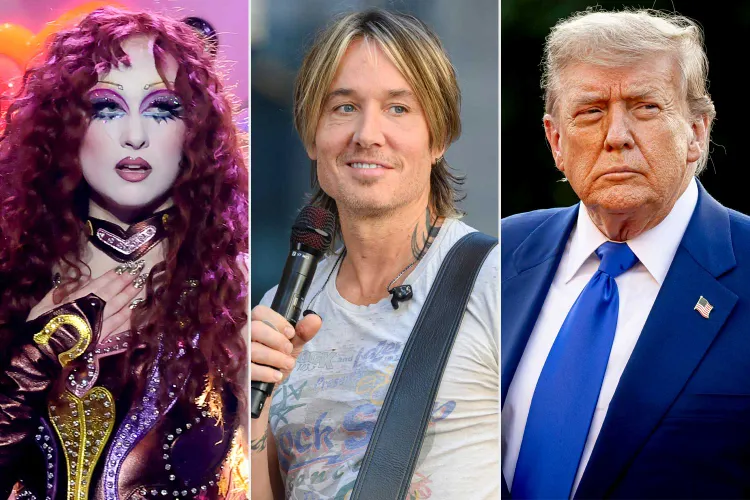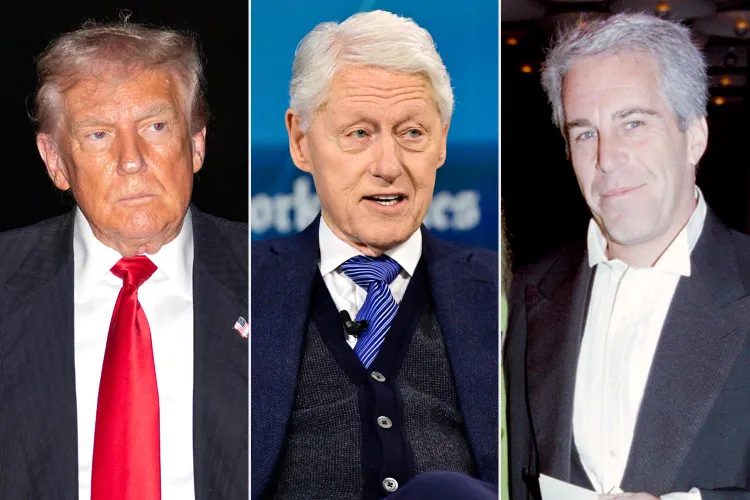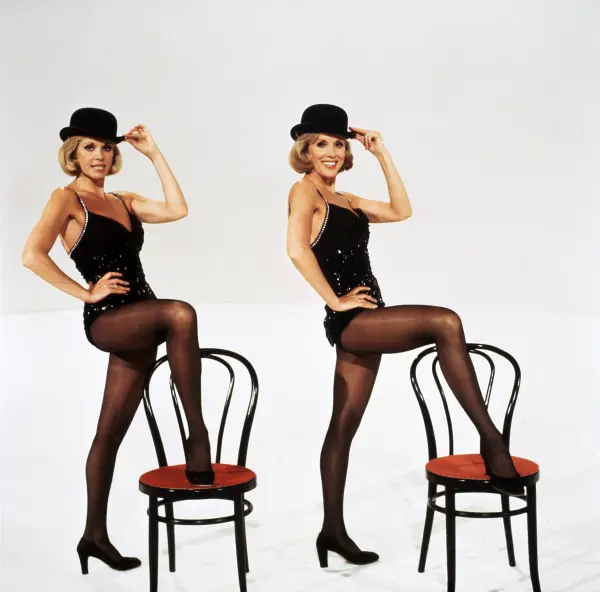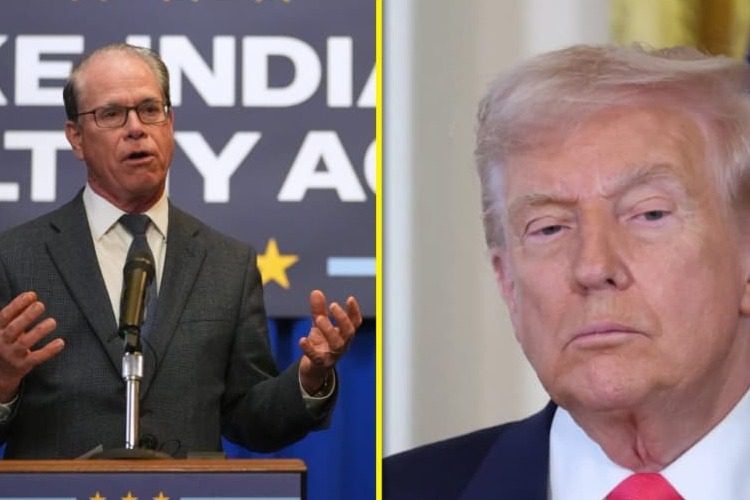When Keith Urban Sang an LGBTQ+ Anthem at a Trump-Linked Party: The Mar-a-Lago Moment Everyone’s Talking About
On November 15, 2025, an event unfolded at Mar-a-Lago that seemed at first glance to be a private gathering among America’s rich and influential. The host was Australian billionaire Anthony Pratt, a major donor and longtime backer of Donald Trump. But midway through the night, the music took a turn that sparked a ripple of surprise across social media, music forums, and broader cultural commentaries. Keith Urban, the country-music star known for his guitar virtuosity and broad audience, stepped up to perform the song Pink Pony Club—a pop anthem by Chappell Roan that has become emblematic of queer identity, freedom, and self-discovery. It was, in many ways, a collision of worlds: country-artist meets pop-anthem, conservative venue meets progressive message, star performer meets audience with very different expectations. What happened at that Florida resort was less about pure spectacle and more about the subtle power of music to transcend, complicate, and challenge cultural assumptions.
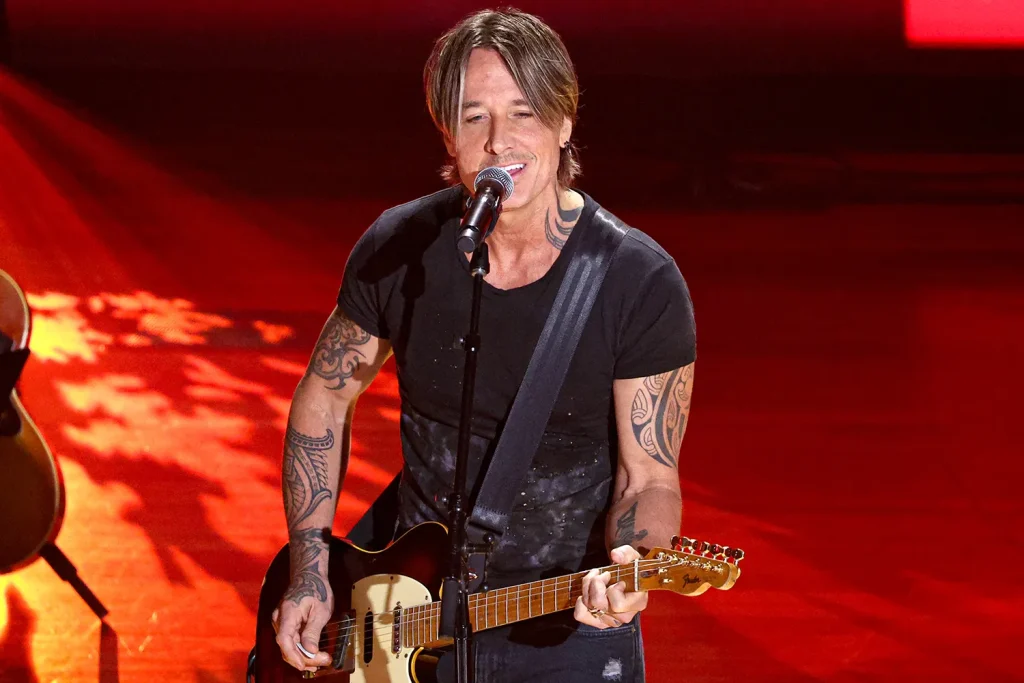
The audience that night, seated in the elegant yet exclusive surroundings of Mar-a-Lago, included one of the most polarizing figures in modern American politics. The former president was spotted in attendance, seated beside Anthony Pratt. Pratt himself is a figure whose influence spans industry, politics, and philanthropy; his reported donation of $10 million to Trump’s 2024 campaign and a pledge of $5 billion toward U.S. manufacturing initiatives give context to why this was no casual house party. When Keith Urban took the stage, the evening shifted. He opened with classics, including Bob Marley’s “Is This Love,” but the moment that raised eyebrows—and a flood of online discussion—was his rendition of “Pink Pony Club.” The song, released by Chappell Roan in 2020 and later included on her debut album, tells the story of leaving a small town, stepping into a club in West Hollywood, and discovering a place where someone finally belongs. Urban himself has spoken in the past about how deeply the song moved him. In a 2024 appearance on the Canadian web series Intimate and Interactive, he said of the song: “Who doesn’t wanna find a safe place, wherever that is? … just somewhere where you finally realize you belong there.”
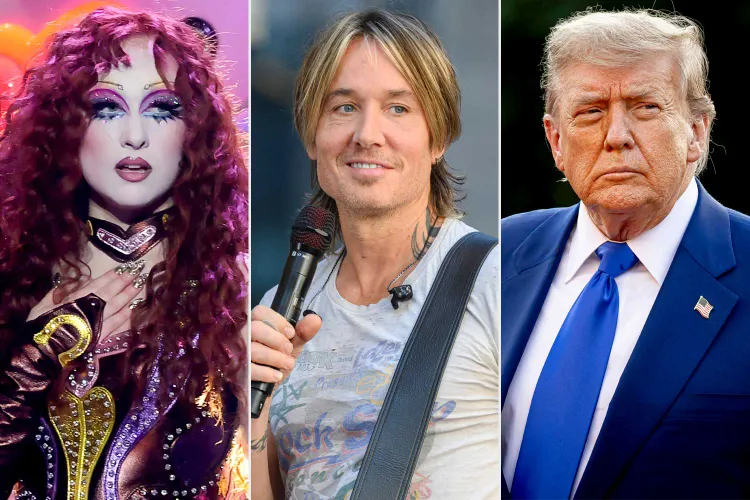
For many fans—and for many critics—the choice to perform that song in that space felt bold. Some viewed it as a simple artistic moment: one musician connecting with a song that resonated deeply with him. Others saw controversy: a moment where the message of a queer-anthem was delivered to a room associated with a political figure whose rhetoric has often aligned with conservative values. Chappell Roan, meanwhile, is not an artist associated with neutrality when it comes to politics or identity. During the 2024 election season she publicly opposed Donald Trump, stating “No, I’m not voting for Trump” in a TikTok video and declaring that she will always question those in power. The performance raises questions about what it means when music breaks out of its expected spaces. For Urban, a country star whose roots are firmly in Nashville tradition, to cover a song about gay liberation in front of one of the most conventionally themed gatherings of the year is a moment of cultural friction. It’s not just about the music—it’s about where the music was played, who was listening, and what this says about boundaries in entertainment, politics, and identity.
Urban himself has long maintained an image of broad appeal rather than overt activism. When asked in 2017 if he would ever perform at the White House under Trump, he avoided a divisive soundbite and simply said, “I’m a citizen, and I like to do what’s right.” His decision to sing Pink Pony Club doesn’t necessarily mark a political shift. It does, however, signal an understanding that a song about finding belonging resonates across communities far outside its original audience. Whether that message lands in the same way inside Mar-a-Lago as it does in a pride-filled nightclub is a question still being debated.
Within minutes of the clip reaching social media, reaction split. Some saw irony. Others saw progress. Many simply saw an unusual pop-culture moment where politics, music, and identity overlapped so tightly that everyone projected their own meaning onto it. One fan wrote, “The idea of Keith Urban singing Pink Pony Club while Donald Trump watches is the most 2025 thing possible.” Others argued that the performance was subversive and brave.
But the larger meaning extends beyond social-media reaction. It speaks to changing realities within country music itself. The genre, once tightly guarded and culturally narrow, has expanded dramatically in the last decade, embracing more crossover elements and broader perspectives. Stars like Kacey Musgraves, Maren Morris, and even Dolly Parton have openly supported LGBTQ+ audiences without losing massive mainstream support. Urban performing a song about queer joy at an event attended by Republican power-figures becomes part of that ongoing transformation.
What adds even more texture is Chappell Roan’s own journey. The 26-year-old singer has earned a reputation for theatrical, unapologetically queer pop that blends heartbreak, humor, and defiance. Her music is not designed to be subtle. Pink Pony Club itself is practically cinematic—thinly veiled autobiography set to synth-pop. The chorus celebrates the fantasy of becoming a dancer in a neon-soaked queer club, with Roan singing, “I wanna go out dancing / I wanna dance in the club.” To hear that sung by a country legend in a ballroom where guests wore tuxedos instead of glitter was, undoubtedly, a collision of aesthetics and symbols.
Some critics questioned whether the performance diluted the meaning of the song. Others argued it actually expanded it—placing queer joy in a space that rarely encounters it makes it, in their view, even louder. There is also the unanswered question of why Keith Urban chose that song at that moment. Nothing suggests he was attempting to make a pointed political statement. He did not introduce the performance with commentary. He simply played it. And sometimes, the absence of explanation makes a cultural moment even more evocative. It allows debate to flourish.
For some viewers, the real fascination lies in the symbolism: a song about leaving small-town repression performed inside a private estate associated with wealth, power, and hierarchy. For others, it is the human connection that matters most. Urban said he loved the song because it was about belonging. Belonging is not partisan. It is not owned by one ideology. It is a human longing.
Seen this way, the Mar-a-Lago performance becomes more than a curiosity. It becomes evidence that art, no matter how political people insist it is, still travels along emotional pathways first. The party guests that evening may or may not have understood the cultural significance of Pink Pony Club. Some may have simply heard a catchy melody, another song in a set. But the millions watching online understood immediately that something unusual had happened.
That is why the story is still spreading days later. Whether interpreted as irony, rebellion, or a harmless party moment, Keith Urban’s performance at Mar-a-Lago forces a conversation about where music is allowed to go and what happens when it crosses the lines we expect it to stay within. The reaction proves that even a single song, played in a single space, can become a cultural lightning bolt.
Keith Urban has not issued any follow-up statement. Chappell Roan has not commented publicly. Donald Trump has not responded. Yet the story is everywhere. That tells us something important: sometimes the most powerful messages are accidental. Sometimes cultural friction reveals more truth than direct activism ever could.
And sometimes, yes, the most talked-about moment in American entertainment is simply a country star singing a queer anthem in a room full of people who never saw it coming.
